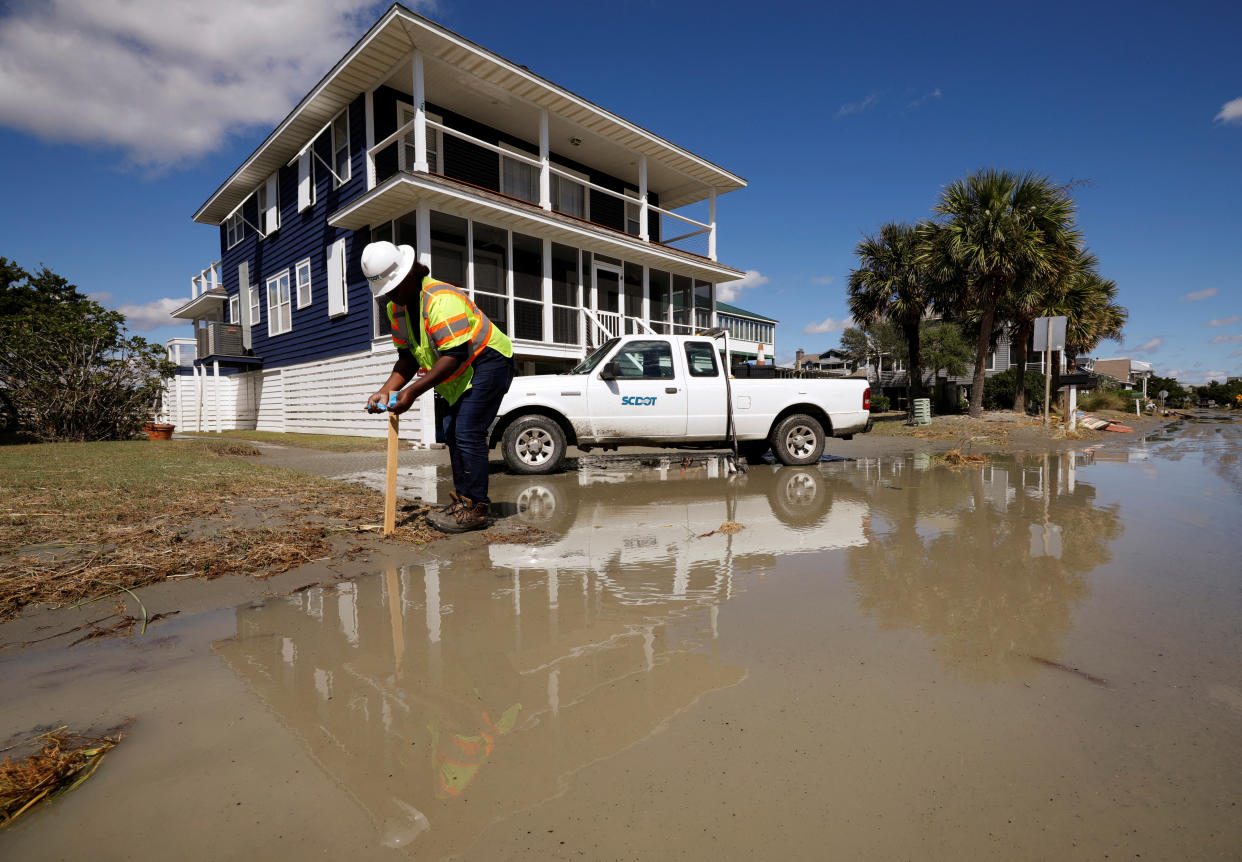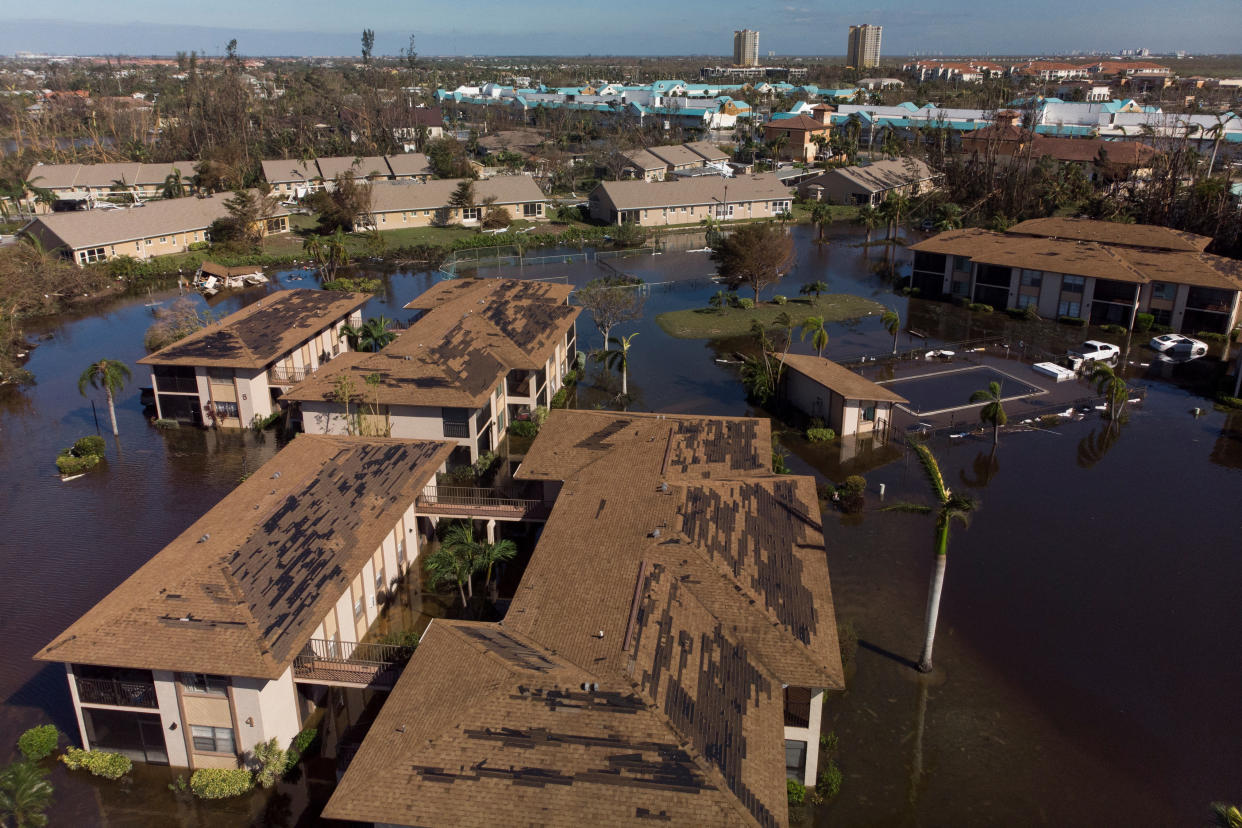Government shutdown could derail home sales in flood-prone places
As if the housing market didn't have enough headwinds already, now a looming government shutdown could threaten the sales of homes in flood-prone areas.
A would-be buyer purchasing a home in a flood-prone area may not get their mortgage approved if Congress doesn't reauthorize a federal program that offers flood insurance — the National Flood Insurance Program (NFIP) —before a potential government closure on Sunday. The NFIP warned on its website that it would not be able "to sell flood insurance and borrow funds" in the event of a shutdown, but can still process and pay claims "as long as funds are available."
The inability to secure NFIP policies would largely affect home sales in high-risk flooding areas along the coast and inland near rivers known for flooding. About 9,000 closings a week could be affected, Jaret Seiberg, an analyst for TD Cowen Washington Research Group, wrote in a recent report.
If you are in a flood zone and your mortgage lender requires you to get flood insurance policy but you can't obtain one, "you are not going to be able to close on that loan," Gernelle Bokuniewicz, founder and broker associate of Lively real estate based in Volusia County, Florida, told Yahoo Finance. "It's a big problem.”

Homebuyers financing mortgages through federally backed or federally regulated lenders are required to obtain flood insurance on properties located in high-risk areas, also known as Special Flood Hazard Areas, according to the Mortgage Bankers Association (MBA). But the majority of flood insurance in the high-risk area is supported by NFIP, as many private insurers have long pulled out of the costly market.
"Without access to flood insurance, property buyers could lose financing or be forced to pay fees to hold interest rates, as NAR estimates that lapses threaten 1,300 property sales each day," a joint letter this month to members of the Congress from the MBA, National Association of Home Builders (NAHB), National Association of Realtors (NAR), Institute of Real Estate Management (IREM), and CCIM Institute, stated.
NFIP currently serves over 5 million flood insurance policies and protects over $1.28 trillion in assets, as the nation's most extensive single-line insurance program. The private flood insurance market makes up one-third the size of the federal market.
Flood insurance is usually mandatory for homebuyers financing their purchases in flood zones because they face great risk of natural disaster losses.
"[Buyers] won’t be able to buy their own without the flood insurance because lenders want you to have that coverage," Bokuniewicz said. "They don’t care and the deal will die without the insurance."

The average flood insurance claim payout to policyholders was $66,000 from 2016 to 2022, according to the NFIP. Just 1 inch of flooding can wreak $25,000 in damage to a home. That number only rises as the flooding increases and/or houses get bigger, according to FEMA's calculation.
The risks and number of floods have also increased over the years. NFIP data shows the hurricane season in 2020 surpassed 2005 as the most active tropical storm season, ending in 30 named storms, which occurs when storms develop a wind speed over 39 mph.
"Hurricane Ian, a category 4 hurricane that struck Florida in September 2022, is estimated to be the costliest Florida hurricane ever," the joint letter said. "Other perils are likely also being magnified, as evidenced by the frequency of inflation-adjusted, billion-dollar disasters over the last decade in the United States."
Floods are the most common and destructive natural disaster in the US, accounting for over 90% of the country's natural disasters, according to the Center for Insurance Policy and Research.
"All areas of the country are prone to floods, as 90 percent of US natural disasters involve flooding," Mark Friedlander, director of communications at the Insurance Information Institute, said.
And the potential lapse in NFIP comes amid hurricane season, which usually runs between September and the end of November.
"We urge an immediate extension of the NFIP. Extending the NFIP would ensure this vital program does not lapse in the middle of hurricane season or create additional challenges for residential and commercial property owners, buyers, managers, renters, and tenants," the joint letter stated.
"Another lapse of the NFIP will leave millions of Americans at risk and disrupt the purchase of flood insurance in more than 20,000 communities across the United States."
Rebecca Chen is a reporter for Yahoo Finance and previously worked as an investment tax certified public accountant (CPA).
